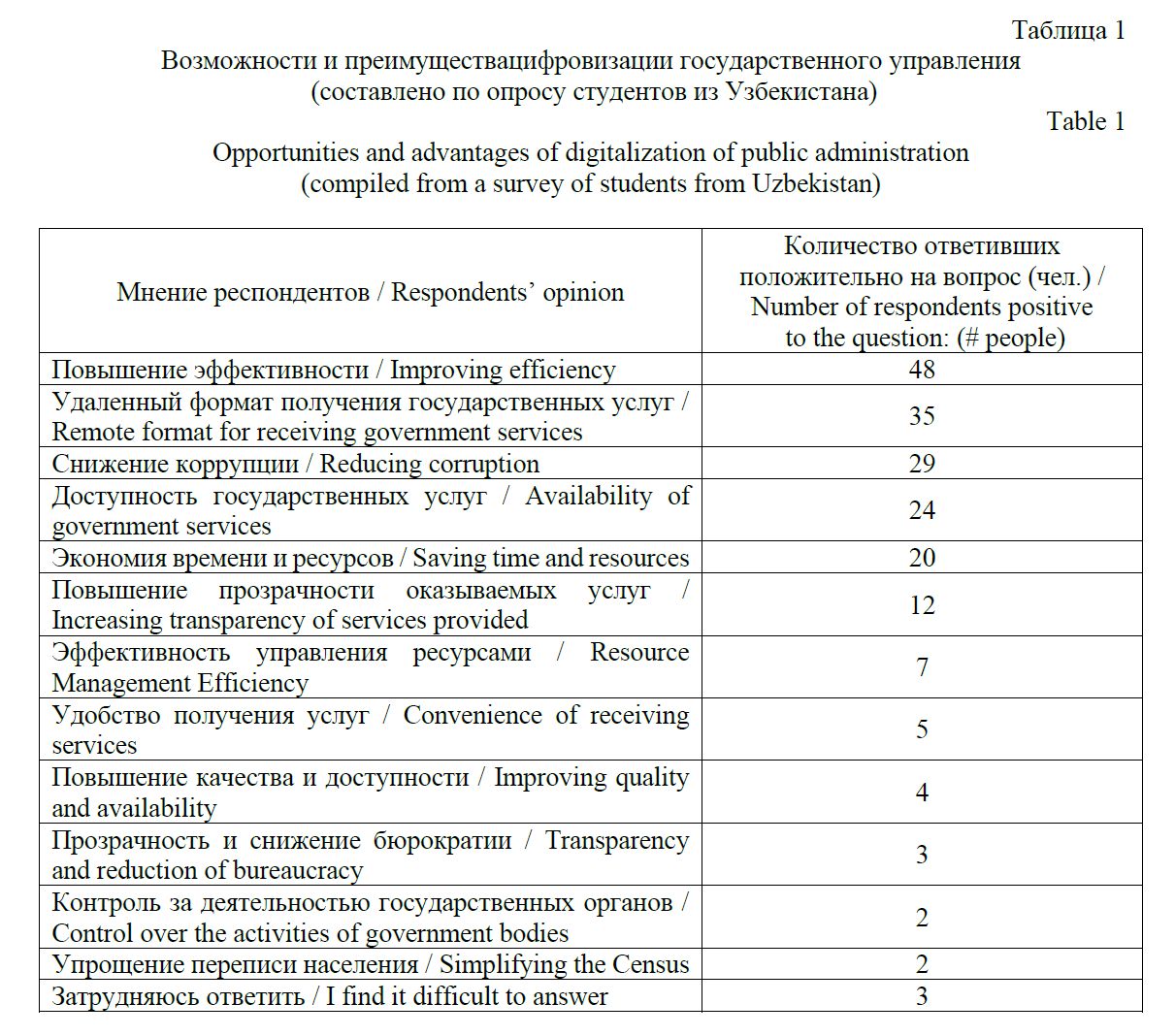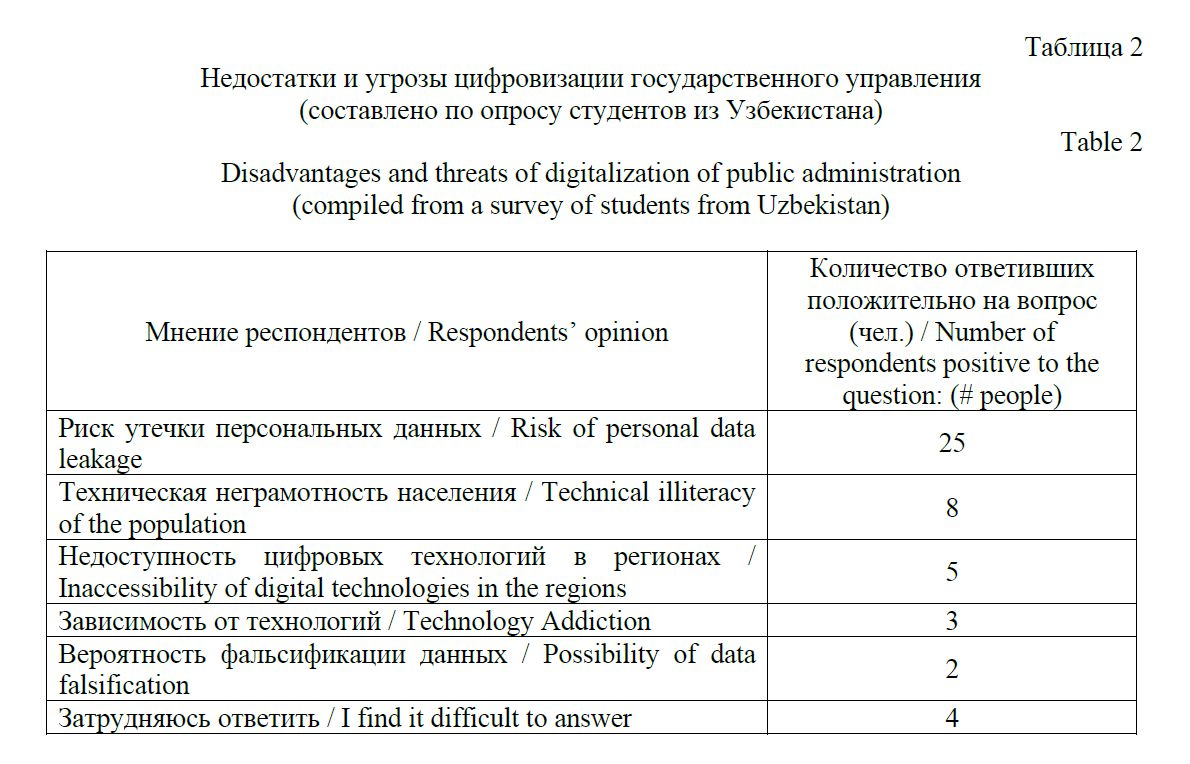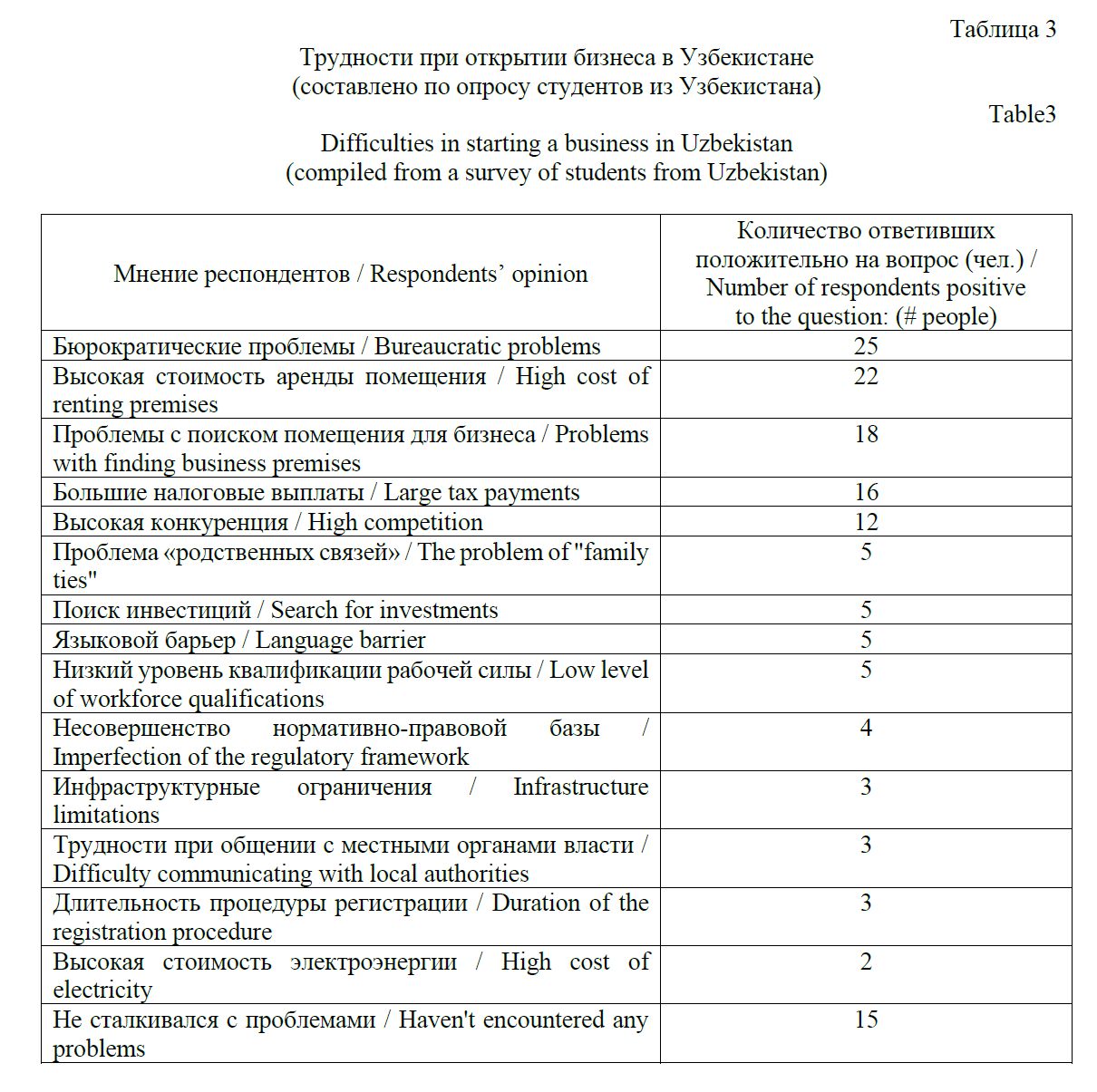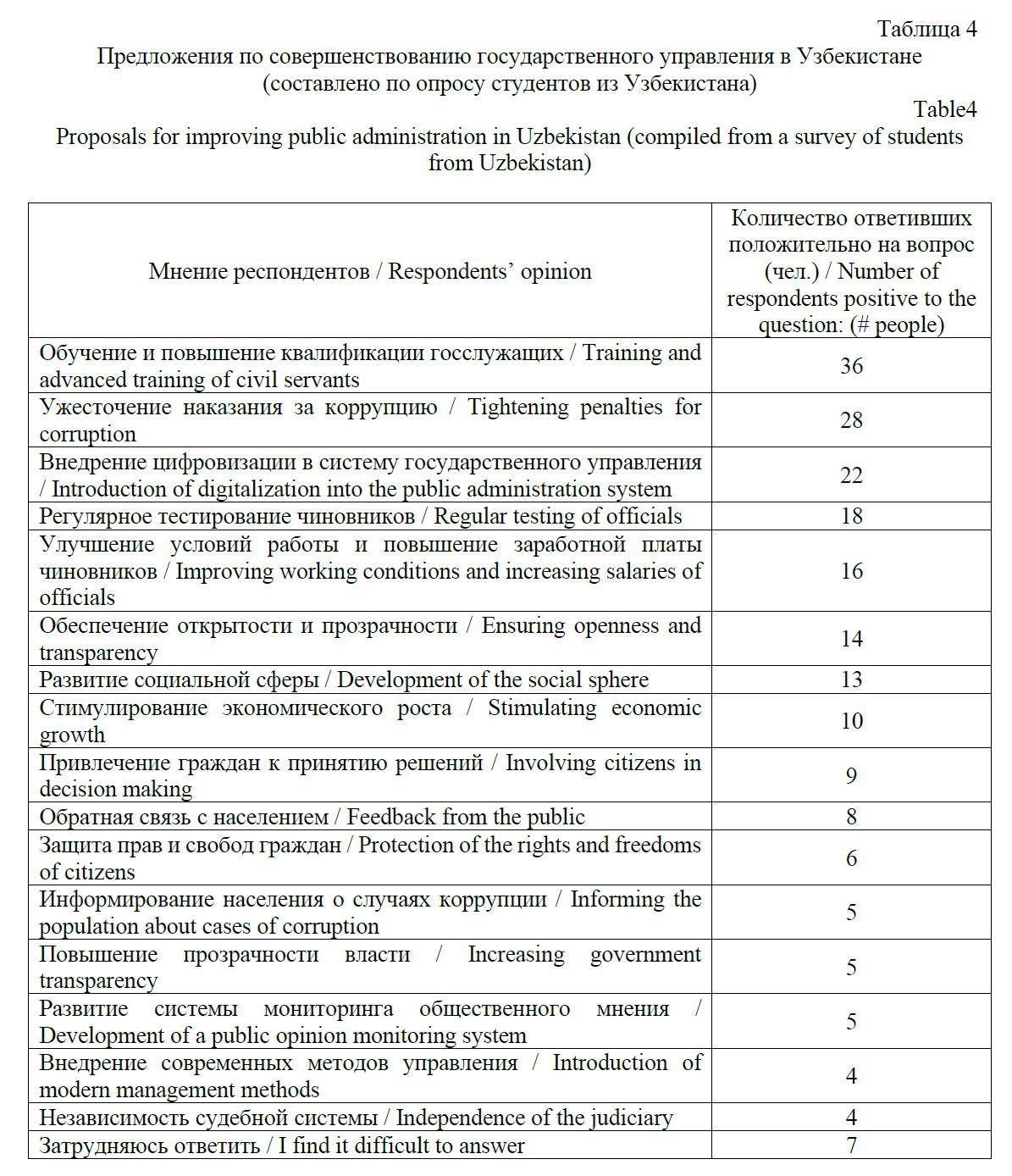Digital transformation of public service in Uzbekistan in the context of new globalization: students’ opinions
The article raises the problems of public administration in the context of digitalization and new globalization, which the population faces when interacting with civil servants in the Republic of Uzbekistan. The role of digital technologies in the public administration system is demonstrated in order to improve the quality of public services and the efficiency of interaction between the state, business and society. The authors focus on the positive results of introducing digital technologies into public administration in the Republic of Uzbekistan. The place of digitalization in modern society in the opinion of students is shown, the features of the digitalization of public administration are studied, the advantages and disadvantages of introducing digital technologies into the public service are identified, and the reasons that hinder the digital transformation of public administration in the Republic of Uzbekistan are identified. The article presents the main results of a content analysis of the opinions of students from Uzbekistan on the digitalization of public administration, the advantages of introducing digital technologies, and lists proposals for increasing the efficiency of civil servants. The main problem areas according to young people are shown. The object of the study was the process of digital transformation of the civil service of Uzbekistan in the context of new globalization. Based on the analysis, it has been demonstrated that the processes of informatization and digitalization both in Russia and Uzbekistan within the framework of public administration affect the entire management environment, since they allow states to increase their efficiency through information and digital technologies.
Figures




Rybakova, M. V., Ivanova, N. A. (2024), “Digital transformation of public service in Uzbekistan in the context of new globalization: students’ opinions”, Research Result. Sociology and Management, 10 (3), 217-228, DOI: 10.18413/2408-9338-2024-10-3-1-4.


















While nobody left any comments to this publication.
You can be first.
Report “Digital Government 2020, Prospects for Russia”. World Bank (2016). (In Russian)
Ablatdinov, S. (2023), “Digitalization of public administration in Uzbekistan: experience and prospects”, Economy and Society, 6 (109), 630-635. (In Russian)
Baldwin, R. (2018), “The Great Convergence: information technology and the new Globalization”, Delo, 416 p. (In Russian)
Veselov, Yu. (2020), “Trust in a digital society”, Bulletin of St. Petersburg university. Sociology, 13(2), 129-143. (In Russian)
Guryeva, T. and Sharabaeva, L. (2022), “Perspectives and risks of digital transformation in state management”, Scientific works of SZIU RANEPA, 1(53), 57-62. (In Russian)
Egupov, A. (2023), “Tools for digitalization of the state civil service in modern Russia”, Society: politics, economics, law, 6, 44-49. (In Russian)
Kravchenko, S. (2019), “Digital risks, metamorphoses and centrifugal trends among youth”, Sociological Research, 10, 48-57. (In Russian)
Sadovaya, E. S. (2018), “Human in a digital society: dynamics of social and labor relations», South Russian Journal of Social Sciences, (3), 6-20. (In Russian)
Ovcharenko, R. and Luneva, I. (2021), “Digitalization of the regional civil service”, Theory and Practice of Social Development, 11, 20-25. (In Russian)
Rybakova, M. and Ivanova, N. (2022), “Digital technologies in the modern public service system”, Sociology, (2), 271-280. (In Russian)
Khamdamova, F. (2020), “Strategy “Digital Uzbekistan-2030”: prerequisites for adoption, main provisions, mechanisms and prospects for implementation”, Society and Innovation, (1), 132-142. (In Russian)